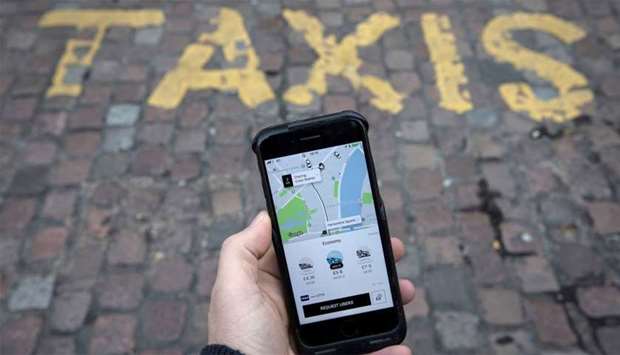Months after Uber Technologies Inc won a reprieve in a high-stakes battle over its operations in the U.K. capital, its London license is back in question.
United Cabbies Group, which represents taxi drivers in the capital, brought a legal challenge Wednesday over the June decision by judge Emma Arbuthnot that granted Uber a 15-month probationary license.
That decision was based on “wholly unsatisfactory reasoning,” the group’s lawyer, Robert Griffiths, said in court.
Arbuthnot’s ruling was also “tainted by actual or apparent bias,” the group said in its filings for the hearing. That’s because Arbuthnot decided in August, soon after making her original determination, not to hear a further case involving Uber. A newspaper reported her husband worked for a strategy firm that has advised the Qatar Investment Authority, one of Uber’s investors, the group said.
The bias claim is “extremely tenuous” and at the time of the hearing, Arbuthnot didn’t know her husband had advised the QIA and wasn’t aware of any link between Uber and the QIA, Uber said in its filings for the case. The cab drivers’ challenge “lacks common sense,” it said.
Representatives for Uber and UGC didn’t immediately comment, and Arbuthnot didn’t immediately respond to an email sent to her assistant seeking comment.
The company’s London operating license is vital, because the city is one of its most lucrative markets. The company’s previous private hire permit lasted five years, and it requested an 18-month extension at the original hearing.
The case won’t necessarily lead to Uber losing its London license, even if the taxi drivers win this week. The cabbies are using a legal process known as a judicial review, which is a challenge to the way a decision has been made rather than the rights and wrongs of the conclusion itself. Public bodies that lose judicial review cases can make the same decision again as long as they do so using the right procedures.
The cabbies’s case is the latest in a series of London lawsuits that the ride-hailing firm is embroiled in, ranging from a $1.3bn tax lawsuit to a case over the employment rights of its drivers, which it will take to the Supreme Court after losing its case in December.

